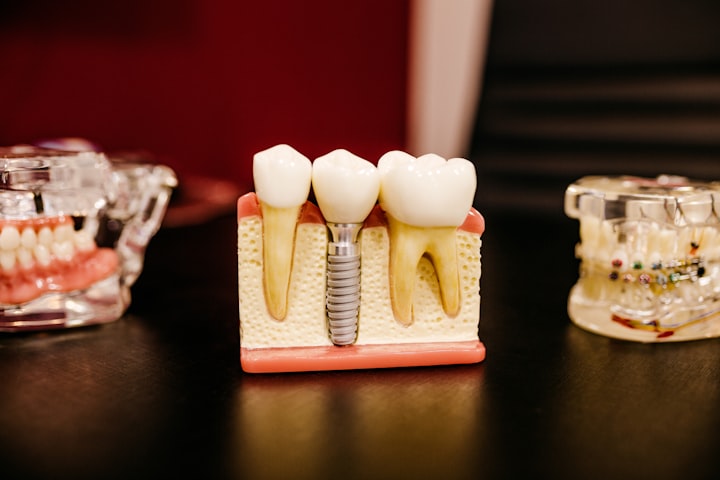Protect your teeth together
Protect your teeth

Oral diseases can pose a threat to the health of the whole body, causing and aggravating many systemic diseases, so it is important to detect and treat them as early as possible
At 10:00 a.m., Chen Lao-Be, accompanied by his family, came to the stomatology department of Hongqiao Street Community Health Service Center.
Dr. Ge Xiaowei was told by Chen's loved ones that a few days ago, his partner's teeth became loose and painful when he ate, resulting in a poor appetite for several days in a row, and his mood became irritable.
After a thorough examination, Ge Xiaowei decided to remove the tooth for Chen.
After the anesthetic took effect, the tooth was taken out with dental pliers, then the wound was treated and the bleeding was stopped with sanitary cotton balls, and the whole process took no more than 10 minutes.
The "root cause" of the pain was solved, and old man Chen, lying on the treatment bed, gave a thumbs up to Dr. Ge Xiaowei.
"If the teeth are unhealthy, with dental caries and periodontitis, chewing function is poor, eating is like swallowing dates in one gulp, food is not fully chewed, it will increase the burden on the stomach, nutrition is not fully absorbed will cause gastric disease." Ge Xiaowei introduced, "in the middle-aged and elderly susceptible to periodontal disease pus, there will be a large number of H. pylori bacteria, dental plaque also harbor a large number of H. pylori, when the body's resistance is low, with saliva or food swallowed in the stomach of H. pylori will 'make waves, leading to the occurrence and recurrence of gastric disease. Therefore, it is vital to keep your teeth healthy."
Ge Xiaowei introduced that in addition to gastrointestinal diseases, dental health is also related to the occurrence of diseases in other parts of the body, including
Heart disease
Pathogenic bacteria from oral diseases and the toxins they produce can invade the bloodstream and aggravate or cause heart diseases such as subacute infective endocarditis and coronary artery disease. Numerous studies have confirmed that periodontitis is an independent risk factor for acute attacks of coronary heart disease and is significantly associated with either acute attacks or overall mortality.
Respiratory diseases
Oral diseases are strongly correlated with aspiration pneumonia due to various causes. According to relevant data, 80% of the causative factors of pneumonia are inhalation of secretions containing bacteria from the oral cavity and pharynx, which are mostly from the mouth.
Diabetes
Diabetic patients are often complicated by oral lesions of different degrees. In the diabetic population, the incidence of periodontal disease is high, and the lesions are severely damaged and progress more rapidly. Also, insulin-dependent diabetic patients with severe periodontitis have significantly poorer glycemic control than patients without periodontal disease.
Gastrointestinal diseases
Peptic ulcers are caused by H. pylori, which is present in large numbers in the oral cavity. Drugs can easily remove H. pylori from the gut, while H. pylori in dental plaque are difficult to remove and become a reservoir of bacteria.
Cerebrovascular disease
There is a correlation between periodontal disease and carotid plaque thickening, a measure of atherosclerosis, suggesting that the mechanism of correlation between the two diseases is an effect on atherosclerosis. Periodontitis is greater than smoking as a risk factor for stroke and is independent of other known risk factors.
Maternal and fetal effects
Periodontal disease is a risk factor for the birth of low birth weight infants. Pregnant women with severe periodontitis have 7.5 times the risk of preterm delivery and birth of a low birth weight infant than those with normal periodontal disease, which is greater than the effect of smoking and alcohol consumption on low birth weight infants.
Impact on growth and development
Chewing function is reduced, resulting in partial eating and loss of appetite, leading to weakened gastrointestinal digestion and absorption, and poor nutrition, which affects growth and development.
Ge Xiaowei reminds us that many dental diseases are related to bad habits in people's daily life. Such as not brushing twice a day, each brush is not enough for three and a half minutes; not rinsing after meals, especially after eating fruit not rinsing, and fruit and saliva reaction, the teeth corrosion effect is greater; some children have a bite hand, bite pencil and other bad habits, these can cause periodontal tissue damage, causing some systemic diseases.
"Bad habits such as smoking and alcoholism in daily life are not only harmful to the health of the whole body but also can directly stimulate the oral mucosa and lead to cancer. In addition, it is best to have an oral examination every six months, do not wait until the occurrence of oral diseases to treat, for the occurrence of tooth loss, loose disease teeth, to the regular dental specialist hospital or dentistry treatment and repair." Ge Xiaowei said.






Comments
There are no comments for this story
Be the first to respond and start the conversation.